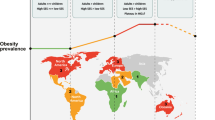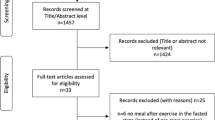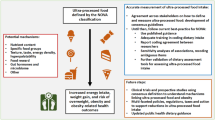Abstract
Metabolic disorders, such as obesity, type 2 diabetes mellitus (T2DM), and metabolic syndrome (MS) are related to chronic pro-inflammatory conditions. Evidence suggests that heat shock proteins are linked to metabolic disorders. Intracellular HSP70 (iHSP70) is mandatory for normal insulin signalling, and proteostasis, and exerts a powerful anti-inflammatory role. On the other hand, the extracellular (eHSP72) is linked with a pro-inflammatory state and induces insulin resistance in humans. Then, we conducted a systematic review with meta-analysis to summarize the data of HSP70 in people with and without metabolic disorders. PubMed, Embase, Scopus, and Web of Science databases were used. Eligibility criteria included observational and baseline data of experimental studies that assessed iHSP70 and/or eHSP72 in adults with metabolic disorders and healthy people. The risk of bias was assessed by the Newcastle–Ottawa scale. Meta-analysis was performed using a random-effect model and the mean difference was estimated for eHSP72 and the standardized mean difference for iHSP70. A total of 11,255 articles were retrieved, 31 articles were assessed for eligibility and 15 were included for data extraction. There was no difference in eHSP72 between metabolic disorders and healthy controls (mean difference (MD) = 0.11; 95% confidence interval (CIs) = -0.05 to 0.27; I2 = 95%). Subgroup analysis showed higher levels of eHSP72 in T2DM people than healthy ones (MD = 0.32; 95% CIs = 0.17 to 0.47; I2 = 92%). For iHSP70 no difference was found (standardized mean difference (SMD) =—0.24; 95% CIs =—1.62 to 1.15; I2 = 86%). Our results suggest that eHSP72 levels may be dependent on metabolic condition and no difference in iHSP70 levels are attributed to high heterogeneity level between studies (PROSPERO REGISTRATION: CRD42022323514).




Similar content being viewed by others
Data availability
The data that support the findings of this study are available from the corresponding author upon reasonable request.
Abbreviations
- ADA:
-
American Diabetes Association
- BMI:
-
Body mass index
- Cis:
-
Confidence interval
- CRP:
-
C-reactive protein
- ELISA:
-
Enzyme-linked immunosorbent assay
- HOMA-IR:
-
Homeostatic model of insulin resistance index
- HSPs:
-
Heat shock proteins
- HSP72:
-
Heat shock protein of 72 kilodaltons (kDa)
- iHSP72:
-
Intracellular HSP72
- eHSP72:
-
Extracellular HSP72
- FC:
-
Flow citometry
- IR:
-
Insulin resistance
- IQR:
-
Interquartile range
- IHC:
-
Immunohistochemistry
- MD:
-
Mean difference
- SMD:
-
Standardized mean difference
- MS:
-
Metabolic syndrome
- NCEP – ATP III:
-
National Cholesterol Education Program Adult Treatment Panel
- PBMC:
-
Peripheral blood mononuclear cells
- SAT:
-
Subcutaneous adipose tissue
- SOMA scan:
-
Slow Of‑rate Modifed Aptamer- scan assay
- TNF-α:
-
Tumor necrosis factor–alpha
- T2DM:
-
Type 2 diabetes mellitus
- WB:
-
Western blot
- WC:
-
Waist circumference
References
Abubaker J, Tiss A, Abu-Farha M et al (2013) DNAJB3/HSP-40 cochaperone is downregulated in obese humans and is restored by physical exercise. PLoS ONE 8:e69217
Alberti KG, Eckel RH, Grundy SM et al (2009) Harmonizing the metabolic syndrome: a joint interim statement of the International Diabetes Federation Task Force on Epidemiology and Prevention; National Heart, Lung, and Blood Institute; American Heart Association; World Heart Federation; International Atherosclerosis Society; and International Association for the Study of Obesity. Circulation 120:1640–1645
Alemi H, Khaloo P, Rabizadeh S et al (2019) Association of extracellular heat shock protein 70 and insulin resistance in type 2 diabetes; independent of obesity and C-reactive protein. Cell Stress Chaperones 24:69–75
Archer AE, Von Schulze AT, Geiger PC (2017) Exercise, heat shock proteins and insulin resistance. Philos Trans R Soc Lond B Biol Sci 19:1738. https://doi.org/10.1098/rstb.2016.0529
Armutcu F, Ataymen M, Atmaca H, Gurel A (2008) Oxidative stress markers, C-reactive protein and heat shock protein 70 levels in subjects with metabolic syndrome. Clin Chem Lab Med 46:785–790
Atkin AS, Moin ASM, Nandakumar M et al (2021) Impact of severe hypoglycemia on the heat shock and related protein response. Sci Rep 11:17057
Bruce CR, Carey AL, Hawley JA, Febbraio MA (2003) Intramuscular heat shock protein 72 and heme oxygenase-1 mRNA are reduced in patients with type 2 diabetes: evidence that insulin resistance is associated with a disturbed antioxidant defense mechanism. Diabetes 52:2338–2345
Chung J, Nguyen AK, Henstridge DC et al (2008) HSP72 protects against obesity-induced insulin resistance. Proc Natl Acad Sci U S A 105:1739–1744
Dasu MR, Devaraj S, Park S, Jialal I (2010) Increased toll-like receptor (TLR) activation and TLR ligands in recently diagnosed type 2 diabetic subjects. Diabetes Care 33:861–868
Deeks JJ, Higgins JP, Altman DG (eds) (2019) Chapter 10: Analysing data and undertaking meta-analyses. In: Higgins JPT, Thomas J, Chandler J, Cumpston M, Li T, Page MJ, Welch VA (eds) Cochrane Handbook for Systematic Reviews of Interventions version 6.3 (updated February 2022). Cochrane, 2022. Available from www.training.cochrane.org/handbook
de Lemos Muller CH, Rech A, Botton CE et al (2018) Heat-induced extracellular HSP72 release is blunted in elderly diabetic people compared with healthy middle-aged and older adults, but it is partially restored by resistance training. Exp Gerontol 111:180–187
de Matos MA, Ottone Vde O, Duarte TC et al (2014) Exercise reduces cellular stress related to skeletal muscle insulin resistance. Cell Stress Chaperones 19:263–270
de Oliveira AA, Mendoza VO, Rastogi S, Nunes KP (2022) New insights into the role and therapeutic potential of HSP70 in diabetes. Pharmacol Res 178:106173
Geiger PC, Gupte AA (2011) Heat shock proteins are important mediators of skeletal muscle insulin sensitivity. Exerc Sport Sci Rev 39:34–42
Henstridge DC, Forbes JM, Penfold SA et al (2010) The relationship between heat shock protein 72 expression in skeletal muscle and insulin sensitivity is dependent on adiposity. Metabolism 59:1556–1561
Higgins JPT, Eldridge S, Li T (2022) Chapter 23: Including variants on randomized trials. In: Higgins JPT, Thomas J, Chandler J, Cumpston M, Li T, Page MJ, Welch VA (eds) Cochrane Handbook for Systematic Reviews of Interventions version 6.3. Cochrane. Available from www.training.cochrane.org/handbook
Islam A, Hait SH, Andrews-Shigaki B, Carus S, Deuster PA (2014) Plasma HSP70 levels correlate with health risk factors and insulin resistance in African American subjects. Exp Clin Endocrinol Diabetes 122:496–501
Kampinga HH, Hageman J, Vos MJ et al (2009) Guidelines for the nomenclature of the human heat shock proteins. Cell Stress Chaperones 14:105–111
Kavanagh K, Davis AT, Jenkins KA, Flynn DM (2016) Effects of heated hydrotherapy on muscle HSP70 and glucose metabolism in old and young vervet monkeys. Cell Stress Chaperones 21:717–725
Koshy L, Jeemon P, Ganapathi S, Madhavan M, Urulangodi M, Sharma M, Harikrishnan S (2021) Association of South Asian-specific MYBPC3Δ25bp deletion polymorphism and cardiomyopathy: A systematic review and meta-analysis. Meta Gene 28:100883. https://doi.org/10.1016/j.mgene.2021.100883
Krause M, Keane K, Rodrigues-Krause J et al (2013) Elevated levels of extracellular heat-shock protein 72 (eHSP72) are positively correlated with insulin resistance in vivo and cause pancreatic beta-cell dysfunction and death in vitro. Clin Sci (lond) 126:739–752
Krause M, Heck TG, Bittencourt A et al (2015a) The chaperone balance hypothesis: the importance of the extracellular to intracellular HSP70 ratio to inflammation-driven type 2 diabetes, the effect of exercise, and the implications for clinical management. Mediators Inflamm 2015:249205
Krause M, Bock PM, Takahashi HK, Homem De Bittencourt PI Jr, Newsholme P (2015) The regulatory roles of NADPH oxidase, intra- and extra-cellular HSP70 in pancreatic islet function, dysfunction and diabetes. Clin Sci Lond 128:789–803
Lee YS, Li P, Huh JY et al (2011) Inflammation is necessary for long-term but not short-term high-fat diet-induced insulin resistance. Diabetes 60:2474–2483
Lopez-Lopez JA, Page MJ, Lipsey MW, Higgins JPT (2018) Dealing with effect size multiplicity in systematic reviews and meta-analyses. Res Synth Methods 9:336–351. https://doi.org/10.1002/jrsm.1310
Moin ASM, Nandakumar M, Kahal H, Sathyapalan T, Atkin SL, Butler AE (2021) Heat shock-related protein responses and inflammatory protein changes are associated with mild prolonged hypoglycemia. Cells 10:3109. https://doi.org/10.3390/cells10113109
Nahas EA, Nahas-Neto J, Orsatti CL et al (2014) The 60- and 70-kDa heat-shock proteins and their correlation with cardiovascular risk factors in postmenopausal women with metabolic syndrome. Cell Stress Chaperones 19:559–568
Nakhjavani M, Morteza A, Khajeali L et al (2010) Increased serum HSP70 levels are associated with the duration of diabetes. Cell Stress Chaperones 15:959–964
Nakhjavani M, Morteza A, Asgarani F et al (2012) The dual behavior of heat shock protein 70 and asymmetric dimethylarginine in relation to serum CRP levels in type 2 diabetes. Gene 498:107–111
Nakhjavani M, Morteza A, Nargesi AA, Mostafavi E, Esteghamati A (2013) Appearance of leptin-HSP70 correlation, in type 2 diabetes. Meta Gene 1:1–7
Oglesbee MJ, Herdman AV, Passmore GG, Hoffman WH (2005) Diabetic ketoacidosis increases extracellular levels of the major inducible 70-kDa heat shock protein. Clin Biochem 38:900–904
O’Neill S, O’Driscoll L (2015) Metabolic syndrome: a closer look at the growing epidemic and its associated pathologies. Obes Rev 16:1–12
Page MJ, Higgins JPT, Sterne JAC (2022) Chapter 13: Assessing risk of bias due to missing results in a synthesis. In: Higgins JPT TJ, Chandler J, Cumpston M, Li T, Page MJ, Welch VA (eds) Cochrane Handbook for Systematic Reviews of Interventions version 6.3 (updated February 2022). Cochrane, 2022. Available from www.training.cochrane.org/handbook
Rodrigues-Krause J, Krause M, O’Hagan C et al (2012) Divergence of intracellular and extracellular HSP72 in type 2 diabetes: does fat matter? Cell Stress Chaperones 17:293–302
Saklayen MG (2018) The Global Epidemic of the Metabolic Syndrome. Curr Hypertens Rep 20:12
Simar D, Jacques A, Caillaud C (2012) Heat shock proteins induction reduces stress kinases activation, potentially improving insulin signalling in monocytes from obese subjects. Cell Stress Chaperones 17:615–621
Stroup DF, Berlin JA, Morton SC et al (2000) Meta-analysis of observational studies in epidemiology: a proposal for reporting. Meta-analysis Of Observational Studies in Epidemiology (MOOSE) group. JAMA 283:2008–2012
Tiss A, Khadir A, Abubaker J et al (2014) Immunohistochemical profiling of the heat shock response in obese non-diabetic subjects revealed impaired expression of heat shock proteins in the adipose tissue. Lipids Health Dis 13:106
Wells G, Shea B, O’connell D, Peterson J, Welch V, Losos M, Tugwell P (2014) The Newcastle-Ottawa Scale (NOS) for assessing the quality of nonrandomised studies in meta-analyses. Available from http://www.ohri.ca/programs/clinical_epidemiology/oxford.asp
Acknowledgements
C.H.L.M. and H.T.S. were supported by scholarships from Brazilian National Council for Scientific and Technological Development (CNPq, Brazil). M.K. is a Research Productivity Fellow of the Brazilian National Council for Scientific and Technological Development (CNPq, Brazil).
Funding
This work was supported by The State of Rio Grande do Sul Foundation for Research Support (FAPERGS; grant #30791.434.41354.23112017—CHAMADA FAPERGS/Decit/SCTIE/ MS/CNPq/SESRS n. 03/2017 – PPSUS, to M.K.)
Author information
Authors and Affiliations
Contributions
M.K., J.R-K and C.H.L.M. conceived and designed research. Funding acquisition: M.K. Data extraction and analysis: C.H.L.M., H.T.S. and J.R-K. Writing—original draft preparation: C.H.L.M., J.R-K. and M.K. All authors read and approved the manuscript.
Corresponding author
Ethics declarations
Conflict of interest
No potential conflict of interest was reported by the author(s).
Additional information
Publisher's note
Springer Nature remains neutral with regard to jurisdictional claims in published maps and institutional affiliations.
Supplementary Information
Below is the link to the electronic supplementary material.
Rights and permissions
Springer Nature or its licensor (e.g. a society or other partner) holds exclusive rights to this article under a publishing agreement with the author(s) or other rightsholder(s); author self-archiving of the accepted manuscript version of this article is solely governed by the terms of such publishing agreement and applicable law.
About this article
Cite this article
de Lemos Muller, C.H., Schroeder, H.T., Rodrigues-Krause, J. et al. Extra and intra cellular HSP70 levels in adults with and without metabolic disorders: a systematic review and meta-analysis. Cell Stress and Chaperones 28, 761–771 (2023). https://doi.org/10.1007/s12192-023-01368-3
Received:
Revised:
Accepted:
Published:
Issue Date:
DOI: https://doi.org/10.1007/s12192-023-01368-3




